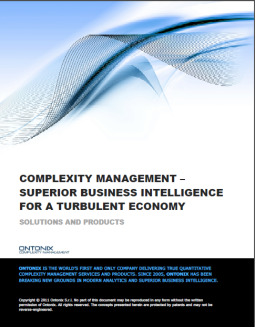We know we can’t make reliable predictions about our environment..but it doesn’t stop us from spending enormous amounts of money to do so. Then to pay for the consequences of getting it wrong!
Introspection needs to get serious and, to do so, go beyond, “how can we improve our margins?” Apparently we don’t like to indulge in too much self-analysis, even though identifying and addressing “flaws” at source makes so much more sense. We can influence, manage or control what we do, why and how we do it. There is very little we can influence outwith our immediate environment. 
To put this into a business context and convey the message about how complex any business can become, consider the following table:
If this is insufficient to convince you that there are enough risks associated with behaviour to be getting on with please consider how many of these could be addressed by a robust Operational structure!
If you still have doubts, perhaps this extract, from a very interesting paper, will help. It was the result of a collaboration between US National Academies/National Research Council and the Federal Reserve Bank of New York on an initiative to “stimulate fresh thinking on systemic risk”.
Catastrophic changes in the overall state of a system can ultimately derive from how it is organized — from feedback mechanisms within it, and from linkages that are latent and often unrecognized Read more of this post


















